
Former Kentucky Warehouse Manager Agrees to Pay $16M in Crop Insurance Fraud Case
A former tobacco warehouse manager in Danville, Kentucky, admitted to helping farmers file fake crop insurance claims and now owes at least $16 million in restitution.
July 21, 2025
Fraud
Insurance Industry
Litigation
Property
Kentucky

Inside the Auto Glass Fraud Crisis
Auto glass scams are costing U.S. drivers billions, fueled by deceptive ‘free’ repairs and AOB schemes. Insurers and lawmakers are responding with pre-inspection programs and tougher penalties.
June 23, 2025
Auto
Fraud
Legislation & Regulation
Litigation
Florida
Kentucky

Millions of Homes Unprotected as Climate-Driven Insurance Costs Soar
New research shows insurance protects against climate disasters, but millions of flood-prone homes remain uninsured as premiums climb beyond affordability.
May 20, 2025
Catastrophe
Legislation & Regulation
Property
Risk Management
California
Florida
Kentucky
Louisiana
New York

Buffalo Trace Distillery Begins Recovery Efforts After Kentucky River Flooding
Buffalo Trace Distillery in Kentucky is cleaning up and inspecting barrels after severe flooding, with plans to resume bottling and reopen its visitor center soon.
April 15, 2025
Catastrophe
Insurance Industry
Property
Risk Management
Kentucky

Historic Flooding Threat Intensifies Across Central US After Devastating Storms and Tornadoes
Following deadly tornadoes and widespread storm damage, central US states now face a rare high-risk flood event that could bring once-in-a-generation impacts.
April 4, 2025
Catastrophe
Property
Arkansas
Indiana
Kentucky
Mississippi
Missouri

Kentucky Farmer Admits to Multi-Year Crop Insurance Fraud Using Family Names
A Taylor County farmer has pleaded guilty to falsifying crop loss claims for over $1.4 million in insurance payments, using relatives’ names to hide actual production.
April 2, 2025
Fraud
Insurance Industry
Legislation & Regulation
Property
Kentucky
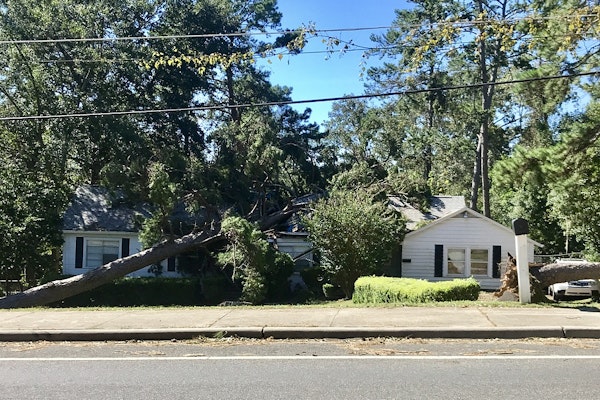
Kentucky Grants Temporary Registration for Unlicensed Adjusters After Severe Storms
Following tornadoes and severe storms on March 15, Kentucky is allowing unlicensed emergency adjusters to temporarily register and operate in three affected counties.
March 20, 2025
Catastrophe
Insurance Industry
Legislation & Regulation
Property
Kentucky
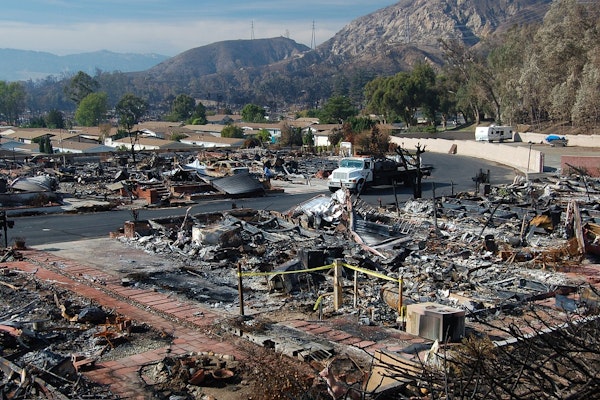
AI Analysis Reveals $2.15 Trillion in US Property at Risk from Wildfires
A new AI-driven study by ZestyAI finds that $2.15 trillion worth of U.S. residential property is at high risk of wildfire damage, affecting millions of homes beyond historically fire-prone regions.
February 27, 2025
Catastrophe
Insurance Industry
Property
Underwriting
California
Colorado
Kentucky
North Carolina
South Dakota

Uninsured and Underinsured Drivers on the Rise in 2023, IRC Report Finds
A new Insurance Research Council (IRC) report reveals that over 33% of U.S. drivers in 2023 lacked sufficient auto insurance, marking a significant increase since 2017.
February 21, 2025
Auto
Insurance Industry
Legislation & Regulation
Risk Management
Colorado
District Of Columbia
Florida
Georgia
Kentucky

Rising Inland Flood Risk Demands Urgent Attention in U.S.
The Insurance Information Institute’s latest report highlights the increasing flood risks faced by inland areas due to shifting weather patterns. Hurricanes, tropical storms, and thunderstorms are pushing the boundaries of flood-prone regions, underscoring the need for better insurance coverage, flood resilience, and mitigation strategies to bridge the protection gap in non-coastal communities.
November 14, 2024
Catastrophe
Legislation & Regulation
Property
Risk Management
Florida
Georgia
Kentucky
New Jersey
New York

Widespread Flooding from Hurricane Helene Spotlights Inland Insurance Gaps
The devastation from Hurricane Helene reveals a significant inland flood-protection gap, particularly in flood-prone communities without sufficient insurance coverage, where misinformation and funding challenges further slow recovery efforts.
October 28, 2024
Catastrophe
Insurance Industry
Legislation & Regulation
Risk Management
Florida
Georgia
Kentucky
New Jersey
New York
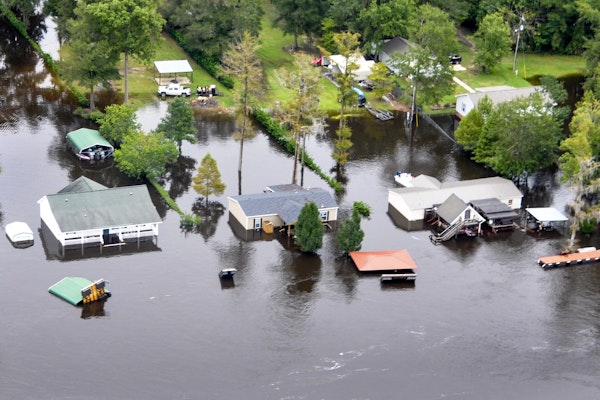
Employers Face Rising Scrutiny Over Worker Safety Amid Natural Disasters
As natural disasters become more frequent, lawsuits are shining a light on employer responsibility for worker safety. Recent cases in Tennessee and Kentucky highlight the legal risks companies face without proper emergency plans.
October 23, 2024
Catastrophe
Litigation
Risk Management
Workers' Compensation
Kentucky
Missouri
New York
Tennessee
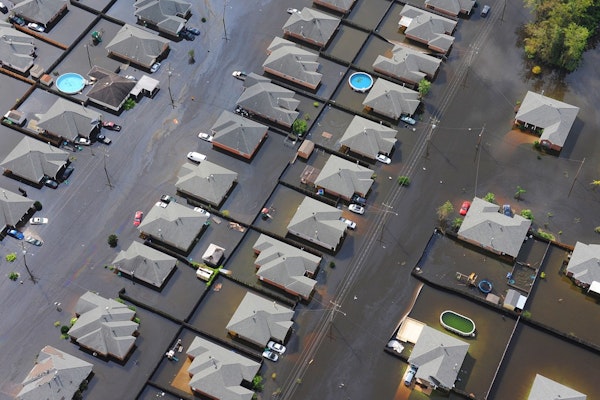
Hurricane Helene’s Economic Impact Could Reach $160 Billion Due to Infrastructure Destruction and Business Losses
Economic estimates for Hurricane Helene project up to $160 billion in damage, driven by widespread infrastructure failure, property loss, business disruption, and long-term recovery costs.
September 30, 2024
Catastrophe
Insurance Industry
Property
Risk Management
Florida
Georgia
Kentucky
North Carolina
Ohio
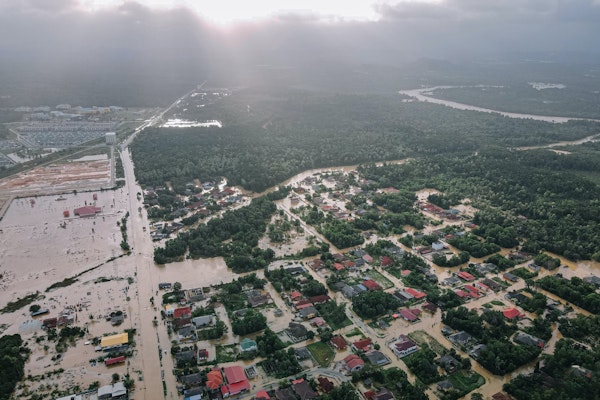
Helene Hits Florida as Category 4 Hurricane, Unveils Critical Flood Insurance Gap
Hurricane Helene’s catastrophic flooding from Florida to North Carolina exposes the serious lack of flood insurance coverage among homeowners, especially in inland areas, highlighting the increasing risks from extreme weather events.
September 30, 2024
Catastrophe
Legislation & Regulation
Property
Risk Management
Florida
Georgia
Kentucky
North Carolina
South Carolina
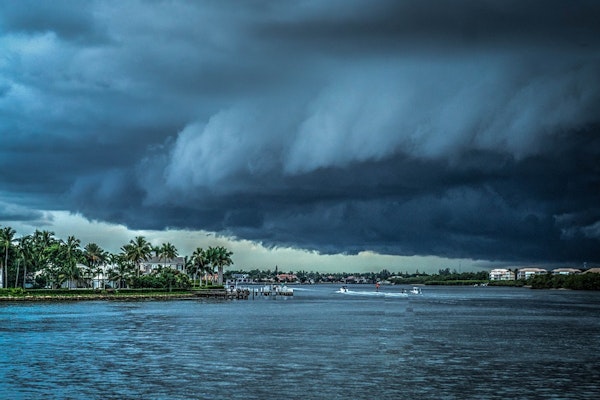
Hurricane Helene Targets Florida with Powerful Storm Surge and Inland Flooding Threats
Hurricane Helene is intensifying as it heads toward Florida’s Gulf Coast, threatening life-threatening storm surges, widespread flooding, and strong winds that will reach far inland across the Southeast.
September 25, 2024
Catastrophe
Litigation
Property
Risk Management
Alabama
Florida
Georgia
Kentucky
North Carolina




